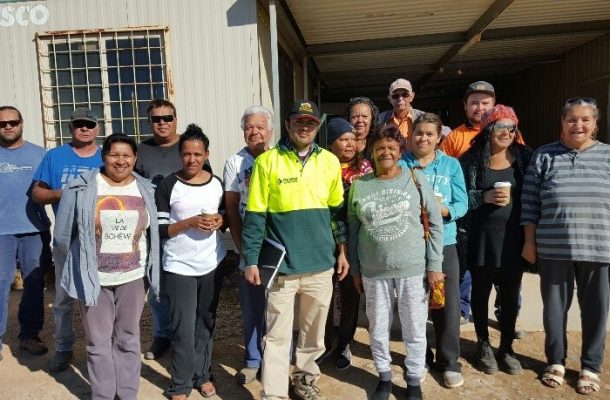Scotdesco steps up to combat climate change

“Trade increases the wealth and glory of a country; but its real strength and stamina are to be looked for among the cultivators of the land.”
The insight shown by English orator and statesman William Pitt the Elder in the 18th century does not seem to chime with the views of Australia’s leaders today, given the political disinterest towards long-term solutions for Australia’s environmental future.
Dr John White’s recent blog on Open Forum and a proposal to launch a Commission for the Future to take a sustainable view of our energy and climate change options were offered to Canberra without success. It seems both sides of politics are focused on short term tactical gains, rather than long-term strategic planning to secure our country’s future.
The solution to this political inaction is to mobilise the business community to present a coherent and united commercial case for action and highlight specific measures being taken to reduce atmospheric carbon dioxide.
The PundaZoie Company and its Greening the Earth programme have taken this approach for almost three decades. They are implementing commercial and economic solutions to reverse the global effects of climate change while creating local jobs and business opportunities from the drawdown and capture of atmospheric carbon dioxide in the soil as soil organic carbon.
In addition to improving resilience against prolonged drought and widespread salinity, these approaches maintain the fertile pasture required to support the global food chain. They also reduce the burden on social welfare by engaging local communities as well as delivering a raft of environmental, cultural, social, emotional and public health benefits for all Australians.
The Saltbush Solution
In pursuit of this agenda, Greening the Earth is creating a number of dry-land plantations, covering 50,000 hectares, on under-productive, marginal farmland around the country. These will be planted with carbon-capturing plants tested in trial plots in a number of global hotspots for their ability to capture carbon and not only survive but flourish in the most extreme conditions.
Many of these species can also be harvested and milled to provide high-protein food and livestock fodder for both human and animal consumption, delivering much needed jobs and business opportunities to their communities.
The first of these projects has already been launched at the Scotdesco Aboriginal Community at Bookabie, a tiny township about 130 kilometres west of Ceduna on South Australia’s Eyre Peninsula. Carbon baselining and planting is already underway, bringing hope to this remote and marginalised community.
One of the main species being planted is Saltbush – several varieties of which are being tested for their capacity to absorb CO2, support less drought tolerant crops around them and be harvested for protein and animal feed-pellets.
Most of the Australian Carbon Credits Units (ACCUs) being generated at Scotdesco were presold to the Commonwealth Government’s Clean Energy Regulator as part of the biggest contract to date under the Carbon Farming Initiative Emissions Reduction Fund.
The Scotdesco project has also attracted the interest of companies looking to sell the food and livestock fodder that will be produced. The crop’s protein extracts, for example, are also high in vitamins, antioxidants, amino acids and other nutrients attractive to Australia’s health and wellness industries.
Here we have an Aboriginal Community which wants to make a difference by creating jobs and business opportunities through their own talents, values and hard work rather than relying on hand-outs and we should support their efforts to prosper.
An Adelaide Summit
Their success could be highlighted at a Climate Action Summit in Adelaide next year, promoted and organized by the Scotdesco Community itself. What an event this would be, showcasing an environmentally friendly way for indigenous people to achieve financial, social and commercial independence to the rest of the nation.
Indeed, such a summit would show the whole world how a commercial regenerative solution can offer an alternative to the morass of political confusion that characterises the current climate change and energy debate.
Promoted by this event, the Scotdesco project might become a beacon in an otherwise barren political landscape by highlighting how future food shortages and current environmental costs can be turned into products and profit.
This commercially focused approach should also attract wider interest from Australia’s decision makers. Nothing attracts the interest and support of politicians more quickly than the chance to take credit for new jobs and opportunities. As former Prime Minister Paul Keating once famously said: “Never get between a State Premier and a bucket of money.”
A national climate action summit, organised and largely funded by the Scotdesco Aboriginal Community and its business partners, would not only promote the soil carbon project at Bookabie but could attract the support politicians for wider change.
A debate now defined by the silence and inaction of our state and national politicians could be reinvigorated by practical “grassroots” action of indigenous communities around the country.
Gabriel Haros is the Founder and Managing Director of the PundaZoie Company and leads its Greening the Desert program. A former journalist, Tasmanian parliamentarian and lawyer, he co-authored a recent UN publication on climate change.














